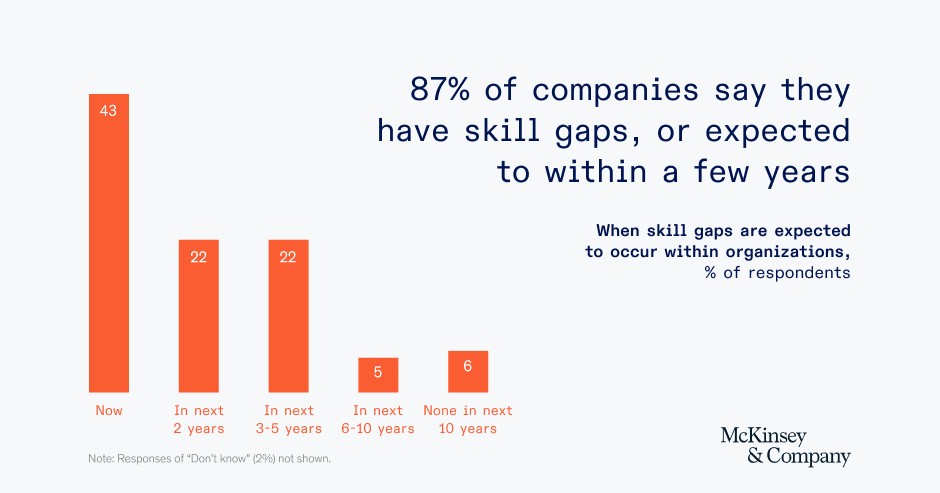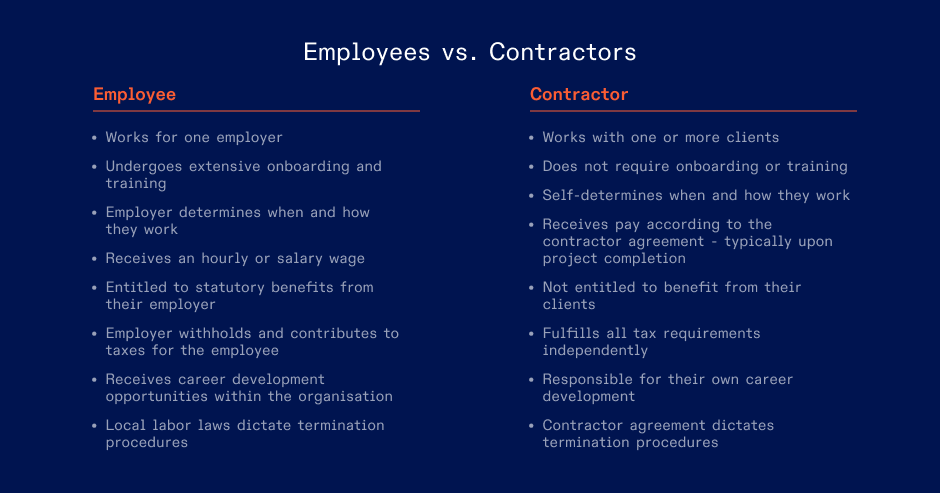With 87% of local tech companies struggling to find skilled talent, they're working overtime to solve this problem.

The gig economy, with freelancers and contractors, is changing how companies hire. These flexible workers offer much-needed skills without the usual hassles like paperwork, vacation leaves, and health benefits.
On the flip side, independent contractors are feeling optimistic about their future and the economy, according to a survey of over 5,000 respondents.
Eugene Garla, VP of Talent at Index.dev, sums it up:
Software developers are turning to contracting for a variety of reasons, including rising living expenses, the need for flexible work-life balance, and the opportunity to work remotely.
It's no wonder 73% of American workers are now freelancing and contracting.
If you're considering hiring tech contractors for your business, here's what you should know.
Find top tech contractors on Index.dev for software development, data engineering, AI/ML, game development, UI/UX design, and project management – all in just 48 hours →
What is contract work?
Contract work refers to a form of employment where individuals, known as contractors, are hired by a company to perform specific tasks or projects for a predetermined period. These contractors are compensated based on a pro-rata arrangement through the company's payroll system.
Contract work can take different forms, including fixed-term contracts or rolling contracts. Companies often engage contractors in various situations, such as during busy periods, for special projects, or to assess their suitability for a potential permanent remote role.
Contractors are typically paid on an hourly basis and may not receive the same benefits like holiday entitlements, paid leave, or health insurance as their full-time counterparts.
Top reasons to hire external contractors
Contract work breaks free from the limitations of on-site, location-bound, skill-constrained, high-competitive talent scarcity, and high-turnover traditional hiring practices. Contrary to freelancing, where bidding, fees, termination costs and low retention cause operational delays, contract work excels in robust vetting and focus on talent integration within the team.
Businesses can use contractors for a variety of purposes, including:
- Cost Savings: Contractors typically do not receive benefits like healthcare, 401(k) plans, or paid time off, which can translate into significant cost savings for companies.
- Scalability: Contractors provide businesses with the flexibility to scale their workforce in response to changing needs and demands.
- Task-Specific Expertise: They are ideal for tasks with limited or predetermined durations, allowing companies to bring in specialized skills for specific projects.
- Project Completion: Contractors enable organizations to undertake and complete critical projects or tasks without the commitment of hiring full-time staff.
- Remote Work: Contractors can work remotely, becoming valuable members of your team, no matter where they're located, ensuring full commitment to your project

Also read: Mixing remote and in-house developers: Pros and cons
How does contracting work?
In essence, contracting provides a flexible arrangement where businesses can access specialized skills for specific projects without the long-term commitments and benefits associated with hiring permanent employees. Contractors are often engaged for their expertise in a particular area and are considered independent professionals responsible for their own tax and benefit arrangements. Here's how it typically works:
- Contract Agreement: A contract is established between the professional contractor and the hiring business. This contract outlines several key aspects:
- The specific task or project the professional will undertake.
- The agreed-upon compensation for the services provided by the professional.
- The timeframe within which the task or project is expected to be completed.
- Completion of Task: The professional contractor carries out the assigned task or project according to the terms specified in the contract. This task often has a predetermined end date and scope.
- Contract Conclusion: Once the contracted task or project is successfully completed, the contractual relationship between the contractor and the business comes to an end. However, there may be opportunities for the contractor to be hired for additional work with the same business.
- Benefits and Entitlements: Contractors do not typically receive benefits such as health insurance, retirement plans, or paid time off that are commonly offered to permanent employees through a company's standard policies and procedures.
- Tax Considerations: Contractors are responsible for managing their own tax obligations, including filing taxes with the Internal Revenue Service (IRS) as independent contractors. This involves paying self-employment taxes and potentially quarterly estimated taxes.
Experiencing contracting work via Index.dev
Contract work has never been more accessible and efficient, thanks to Index.dev - a tech remote-work platform for sourcing, hiring, and managing tech talent remotely.
Also read: Maximize remote developer sourcing with these 4 hacks
1) Simplicity and efficiency are paramount
With contract work, businesses looking to hire independent professionals can easily post job listings based on the specific task they need to be completed. Index.dev, a global tech remote-work platform, simplifies the creation of these job listings, making it effortless to target contract tech talent with specialized expertise. Companies can register on the platform, post job listings, and review applicants' profiles and portfolios to find the perfect match for their project.
2) Transparent agreement & seamless matchmaking
Before the project commences, both the client and contractor collaborate to determine essential details such as the work schedule and pay rate. For instance, imagine you're in search of a skilled Python developer who fits your budget. The contractual work model is both efficient and effective: Index.dev presents you with three carefully vetted Python developers. You have the opportunity to interview them and select the one that aligns perfectly with your project needs.
3) Seamless project kickoff
Once your choice is made, the developer assigned by Index.dev embarks on your project. They receive payment upon reaching predefined milestones or successfully completing the entire task, all under the vigilant management and supervision of Index.dev. We've witnessed cases where a client initially considered two candidates for a single position. These candidates didn't just meet expectations; they exceeded them. As a result, the client chose to retain both developers, a testament to the caliber of talent we bring to the table at Index.dev.
With Index.dev, contracting isn't just a connection; it's an enhancement of your hiring capabilities.